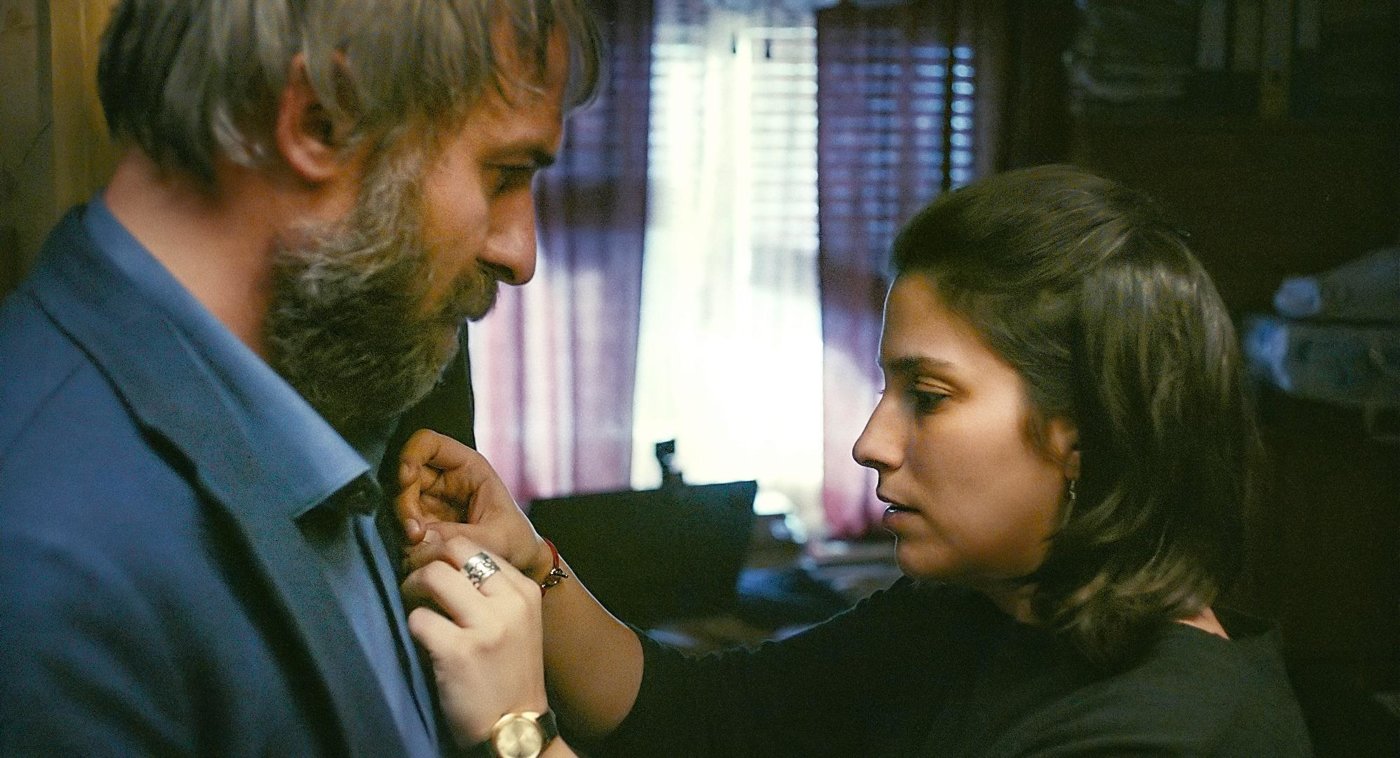
- Film
Seen in Cannes: Sieranevada
Director Cristi Puiu, one of the leaders of the Romanian New Wave, is in main competition for the first time at the 2016 Cannes Film Fest. But he is not a new presence at this prestigious event. He made a splash a decade ago with his supreme feature, The Death of Mr. Lazarescu, which won the top prize of Un Certain Regard, the second-tier sidebar in Cannes.
His new movie, strangely and deliberately inappropriately titled, is a logical follow-up to his previous work, specifically Lazarescu, which was a darkly humorous but serious satire of an ailing, ultimately dying, man, placed in the context of a rigid, red-tape bureaucracy.
Puiu’s movies are famously long: was over two hours, and the new one—beware–is 175 minutes. Though some critics may define this element as self-indulgence, his films are always sharply observed, with a tone that’s part mordant, part funny (in a bleak way). They are tales of ordinary men who had every reason to believe that everyday life in Romania would be better after the death of the corrupt leader Ceausescu, back in 1989. But alas it is not—albeit for different reasons.
As for the enigmatic title, Sieranevada, the director said in a press conference that the choice was arbitrary, sort of an inside joke about the common practice of selecting names according to the different countries in which they are shown. Indeed, the moniker has nothing to do with the US mountains or movies.Claustrophobic, most of the movie is confined to one setting, the interiors of one modest apartment, in which family members have gathered for a funeral. Gradually—but very slowly—we get to meet the participants, though none is introduced in a conventional Hollywood way.
For those who seek genre labels, Sieranevada could be described as an intense family melodrama, in which most of the characters begin by holding their emotions down and keeping their secrets below the surface. We therefore expect for the tension to rise to the point where eventually there will be confessions, apologies, and disclosures.
The apartment is modest, even shabby looking, and the story takes place between a memorial service and a wake for a man called Emil, who had just died. The most interesting character—and the focus of the story—is Emil’s older son Lary (Mimu Branescu), a bearded, overweight doctor who arrives after an argument with his equally contentious wife about getting his daughter the “wrong” Disney costume for her school play. Another brother is a conspiracy theorist who insists that 9/11 was a put-up job, linked to the Oklahoma bombings and even the Charlie Hebdo terror in Paris last year.
For reasons that cannot be revealed here, through an endless cycle of bizarre events, they are prevented from eating, a situation that recalls – and makes explicit reference to – Luis Bunuel (The Exterminating Angel). For starters, the priest is late, and the guests refuse to eat until he conducts all the proper prayers and hymns. Then one son protests the tradition in which he must wear the suit of the dead man so that he can receive blessing. It doesn’t help that the suit is way too big and needs to be repaired, which causes further delay.
Out of the blue, an aggressive uncle Tony (Sorin Medeleni) shows up uninvited. Criticized for his misconduct (infidelity), he is asked to leave, and his long-suffering wife collapses. An old aunt is still proudly an unrepentant communist who upsets her niece by saying that the Ceausescu regime gave the people housing and schools, but later on, she herself denounces Marx and Lenin.
Later on, Lary leaves, and after another row with neighbors over parking places, he reveals his own obsessions with his father’s lies, and with a haunting childhood memory.
What makes the long day even stranger is that, despite their hunger and huge quantities of food, the members don’t eat; they just continue to drink heavily red wine—and talk and talk. Unsurprisingly, in due time, most of the characters lose their tempers and the arguments escalate to an interesting climax
Though Sieranevada is not a message picture, Puiu's statement is loud and clear: Funerals are more about the living survivors than about the deceased.